Opinion
Only Committees and Commissions, NO RESULTS
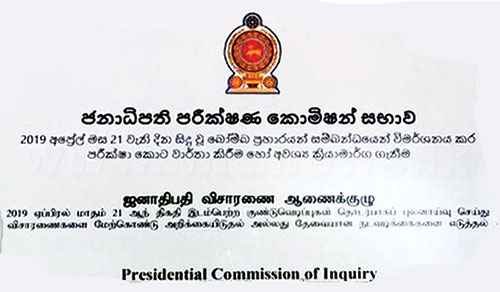
During the Yahapalanya Government, Sri Lanka suffered multiple scandals involving both the public and private sectors with colourful individuals playing their roles to perfection in the political theatre of the absurd. As we know, the former President and Prime Minister were famous for their love of committees and commissions to investigate allegations of corruption or mismanagement of funds. Sometimes this is done with the best of intentions, yet it is regretful that the majority of the reports of these committees and commissions do not show any meaningful results. After much time and public resources spent, the reports simply wither away with the public none the wiser and without the country benefiting.
A Dereliction of Duty
The Easter attacks left hundreds dead, many more injured, and the economy devastated with the crucial tourism industry halted, due to the complete negligence of officials at every level in the national security apparatus. All this was in the immediate lead up to the Easter Bombings. However if we look back further, we will observe even more startling revelations.
An arrest warrant against the main perpetrator was issued as far back as 2018 but never followed through. Indian intelligence services had provided atleast three warnings, including one on the eve of the attack with specific information regarding the sites predicted for an attack.
As far back as 2016, the Muslim Council of Sri Lanka filed police complaints, alleging that the “National Thaweed Jamat” (NTJ) was preaching violence and extremism. These complaints were not followed up adequately. In January 2019, 100 kilograms of explosives and 100 detonators were found near the Wilpattu National Park. The police even stated that they belonged to an Islamist group. The detonation of explosives in a motorbike during a lightning storm, also in the East of the country, should have provided further clues that something was brewing in the East. Yet there was no prior warning, the public was never made aware of the danger posed. The level of gross negligence in these matters is astonishing, and surely there should be manslaughter charges brought against officials that failed our country.
The writing was very much on the wall leading up to the Easter Sunday attacks. Successive officials representing the Central Government in the Eastern province had been virtually asleep at the wheel while a dangerous and extremist ideology was being spread. The NTJ held meetings and prayer services, attacked and threatened citizens and rival mosques and moderate muslim leaders. Foreign money from dubious sources flowed into the provincial coffers in the form of charity and grants. The Justice Minister at the time stated that foreign forces were trying to infiltrate and radicalize muslim citizens in Sri Lanka, particularly in the east. Information regarding foreign elements connected to the Islamic State (ISIS) was available to the security apparatus. Still – authorities that should have acted promptly were in a deep slumber – astounding!
During the Parliamentary Select Committee proceedings, a witness produced several Islamic textbooks and Islamic teaching materials published by the Department of Educational Publications stating that the Islamic punishment for apostasy (renouncing religion) was death. The material in these books was being taught even to children in Grade 9 and these books were first published in 1982 and republished in 1984 and 2017! It beggars belief that no one had seen this coming.
The Prime Minister had the gall to state that he was not being invited to security briefings, that he was willfully kept out of the loop and did not take any responsibility. Surely the PM should have taken this up immediately. The fact he did not shows a complete lack of interest in national security affairs and thus we can start to imagine how such a catastrophe was allowed to occur.
Sri Lankans watched on, bewildered at the lack of foresight and action from officials at every level of the government and the security and intelligence apparatus. Since the attack, we have witnessed a myriad of theories and accusations levelled at any and all members of the previous regime as well as the current regime. Senior MPs and politicians stated that they had not received the intelligence memos. Police officials and intelligence officers stated that the recommendations of their investigations were not followed through. What did the government do next? You can probably guess. Numerous investigations through Committees! Including a Presidential Commission of Inquiry and a Parliamentary Select Committee. A convenient and often used tool to brush serious lapses aside.
A Family Bond at the Central Bank
Imagine basing an entire presidential campaign on the promise of eliminating corruption and bringing legal action against thieving government officials. Then being embroiled in a classic case of insider trading within two months of winning said campaign. The Yahapalanaya Government had a sense of irony if little else. In what has to be considered the most poorly planned and executed case of insider trading, between family members no less, the UNP-SLFP government of 2015 was over before it had begun.
As a banker I am well aware of the many restrictions in place to prevent insider trading and other forms of fraud at financial institutions. The fact that, as the regulator, the CBSL is directly responsible for compliance and yet found itself caught up in such flagrant and criminal behavior is scarcely believable and totally unacceptable.
If you are going to engage in criminal activity you may want to at least seek to cover your tracks and make it a little challenging for the authorities to investigate. Alas, using the then CBSL Governor’s son-in-law’s company to carry out the transaction was not the work of a criminal mastermind. During the recent General Election, the former Prime Minister claimed that there was no material loss to the country despite the protests of many experts and in spite of the 2016 Report from the Committee on Public Enterprises (COPE). Of course, the former PM is famous for forming numerous committees and commissions to buy time and sweep issues under the proverbial carpet. The CBSL bond scam was the start of a long list of commissions and committees, assembled at a high cost to the tax payer, and with no results to speak of.
Aside from the obvious financial implications, this blatant act of corruption, which the COPE report suggests had been carrying on for some time before the Yahapalanaya Government, had dire effects for the country’s image. Successive governments have tried every which way possible to attract FDI to our country. Considering the Chinese Communist Party’s (CCP) interest in Sri Lanka, attracting FDI should not be so difficult. Numerous tax holidays, promises of ‘one-stop shops’, easing restrictions on foreign ownership of land and even relaxing the rules on foreign exchange brought in to Sri Lanka has not had a significant impact on the levels of FDI.
Perhaps a simple process of getting our house in order might help more than convoluted tax structures. A foreign investor that pays any attention at all, would be shocked to hear that the Governor of the Central Bank was being put under investigation. Further still, the fact that this official was a close friend of the sitting PM, was handpicked by him and is now hiding in Singapore, would send any potential investor running for the hills.
The economic minds in the current cabinet and hopefully beyond must surely realize that financial governance and rule of law are two absolutely non-negotiable pre-requisites for any investment decision.
The Citizenry holds its collective breath….
The aforementioned commissions and committees spend large sums of money and meander through its processes and procedures. All the while, Sri Lankan citizens, who must collectively carry the burden of the financial damage, await real progress and appropriate punishments for those found guilty and the implementation of suitable laws to prevent recurrence.
The recent explosion at the port of Beirut in Lebanon shows what can happen when the state machinery fails in its basic duties. We cannot afford to have state officials exist in a state of hibernation while the wheels are left to turn. The previous administration made a mockery of its own ‘Yahapalanaya’ manifesto, simply kicking the can down the road and hoping that no one notices. Certainly, the Sri Lankan electorate did notice, judging by the complete decimation of the UNP at the 2020 polls.
The People deserve better than this. The current President and Prime Minister have received a clear mandate, they are considered to be people of action, of providing results. I implore them to take the above matters to heart and seriously consider how we approach the next phase of our country’s development. When the state makes miscalculations of such magnitude, when there is a lack of due diligence in decision making, when there are no consequences faced for inaction, the country and its people become the ultimate losers.
Even as recently as this past week, we saw the PCoI on the Easter Sunday attacks once again ask the former President Maithripala Sirisena to visit its offices to provide yet more testimony. On the 17th of August the entire country was plunged into darkness due an issue at the power station and what was the response of the newly appointed Minister of Power? He has appointed a ‘special committee’ to look into the matter.
I urge the print media to periodically devote a special page or even a separate supplement to show the progress of the investigations of the various committees and commissions. In these pages, the mainstream media must make a list of all the commissions currently active as well as those that have completed their investigations. The reports submitted should be regularly summarized in print so that the public can stay informed. The media and the public must maintain pressure throughout so that we do not simply move from one controversy to another. Why should the proceedings of these committees be held in private, why can they not be televised so that the tax payer can hear the testimonies and study the evidence for themselves? The media must ensure that it does its duty as part of this democracy.
Rienzie Wijetilleke & Kusum Wijetilleke
Colombo 7
- News Advertiesment
See Kapruka’s top selling online shopping categories such as Toys, Grocery, Flowers, Birthday Cakes, Fruits, Chocolates, Clothing and Electronics. Also see Kapruka’s unique online services such as Money Remittence,News, Courier/Delivery, Food Delivery and over 700 top brands. Also get products from Amazon & Ebay via Kapruka Gloabal Shop into Sri Lanka.
Opinion
Take Human Rights seriously, not so much the council or office
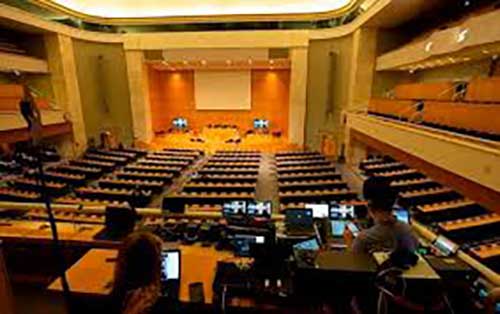
By Dr Laksiri Fernando
The 46th Session of the UN Human Rights Council started on 22 February morning with obvious hiccups. The Office, to mean the Office of the UN High Commissioner for Human Rights, finally decided to hold all sessions virtually online, only the President of the Council and the assistants in the high table sitting at the UN Assembly Hall in Geneva. The President, Ms. Nazhat Shammen Khan, Ambassador from Fiji in Geneva, wearing a saree, was graceful in the chair with empty seats surrounding.
In the opening session, the UN General Assembly President, UN General Secretary, UN High Commissioner for Human Rights, and Head of Foreign Affairs, Switzerland (as the host country), addressed remotely the session. In fact, there was no need for Switzerland to have a special place, as the UN is independent from any host country. Switzerland is fairly ok, however, if this tradition is followed, the UN General Assembly may have to give a special place to the US in New York.
Initial Addresses
UN General Secretary, Antonio Guterres’ address could have been quite exemplary if he gave a proper balance to the developed and developing countries. He talked about racism and fight against racism but did not mention where racism is overwhelmingly rampant (US and Europe) and what to do about it. Outlining the human rights implications of Covid-19 pandemic, he made quite a good analysis. It was nice for him to say, ‘human rights are our blood line (equality), our lifeline (for peace) and our frontline (to fight against violations).’ However, in the fight against violations, he apparently forgot about the ‘blood line’ or the ‘lifeline’ quite necessary not to aggravate situations through partiality and bias. He never talked about the importance of human rights education or promoting human rights awareness in all countries.
His final assault was on Myanmar. Although he did not call ‘genocide,’ he denounced the treatment of Rohingyas as ethnic cleansing without mentioning any terrorist group/s within. His call for the release of Aung San Suu Kyi and other civilian leaders undoubtedly should be a common call of all. However, he did not leave any opening for a dialogue with the military leaders or bring back a dialogue between Aung San and Min Aung, the military leader. With a proper mediation, it is not impossible. Calling for a complete overhaul as the young demonstrators idealistically claim might not be realistic.
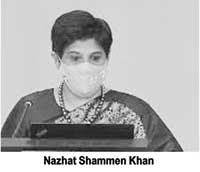 High Commissioner Michelle Bachelet’s address was brief and uncontroversial this time without mentioning any country or region. It is clear by now perhaps she is not the real author of the Report against Sri Lanka, but someone probably hired by the so-called core-group led by Britain. Her major points were related to the coronavirus pandemic trying to highlight some of the socio-economic disparities and imbalances of policy making that have emerged as a result. The neglect of women, minorities, and the marginalized sections of society were emphasized. But the poor was not mentioned. As a former medical doctor, she also opted to highlight some of the medical issues underpinning the crisis.
High Commissioner Michelle Bachelet’s address was brief and uncontroversial this time without mentioning any country or region. It is clear by now perhaps she is not the real author of the Report against Sri Lanka, but someone probably hired by the so-called core-group led by Britain. Her major points were related to the coronavirus pandemic trying to highlight some of the socio-economic disparities and imbalances of policy making that have emerged as a result. The neglect of women, minorities, and the marginalized sections of society were emphasized. But the poor was not mentioned. As a former medical doctor, she also opted to highlight some of the medical issues underpinning the crisis.
Then came the statements from different countries in the first meeting in the following order: Uzbekistan, Colombia, Lithuania, Afghanistan, Poland, Venezuela, Finland, Fiji, Moldova, Georgia, Kazakhstan, Equatorial Guinea, Vietnam, Belgium, and Morocco. The obvious purposes of these statements were different. Some countries were apparently canvassing for getting into the Human Rights Council at the next turn perhaps for the purpose of prestige. Some others were playing regional politics against their perceived enemies. This was very clear when Lithuania and Poland started attacking Russia.
But there were very sincere human rights presentations as well. One was the statement by the President of Afghanistan, Mohammad Ashraf Ghani. He outlined the devastating effects that Afghanistan had to undergo during the last 40 years, because of foreign interferences. The initial support to Taliban by big powers was hinted. His kind appeal was to the UN was to go ‘beyond discourse to practice’ giving equal chance to the poor and the developing countries to involve without discrimination.
Controversial Presentations
China’s Foreign Affairs Minister, Wang Yi, made his presentation almost at the end of the first day. This is apparently the first time that China had directly addressed the Human Rights Council. Beginning with outlining the devastating repercussions of the coronavirus pandemic he stressed that the world should face the challenges through ‘solidarity and cooperation.’ He broadened the concept to human rights solidarity and cooperation. His expressed views were quite different to the others, particularly to the Western ones.
He frankly said that what he expresses are the views of China on human rights without claiming those are absolute truths or forcing others to believe or implement them. There were four main concepts that he put forward before the member countries. First, he said, “We should embrace a human rights philosophy that centres on the people. The people’s interests are where the human rights cause starts and ends.” Second, he said, “we should uphold both universality and particularity of human rights. Peace, development, equity, justice, democracy, and freedom are common values shared by all humanity and recognized by all countries.” “On the other hand,” he said, “countries must promote and protect human rights in light of their national realities and the needs of their people.”
“Third,” he said, “we should systemically advance all aspects of human rights. Human rights are an all-encompassing concept. They include civil and political rights as well as economic, social, and cultural rights.” He then emphasized, “Among them, the rights to subsistence and development are the basic human rights of paramount importance.” Fourth, “we should continue to promote international dialogue and cooperation on human rights. Global human rights governance should be advanced through consultation among all countries.”
It was on the same first day before China, that the United Kingdom launched its barrage against several countries not sparing Sri Lanka. The Foreign Secretary, Dominic Raab, delivered the statement from top to bottom attacking alleged violating countries on human rights. But there was no mentioning of Israel for the repression of Palestinians or the systemic racism rampaging in the United States, including the 6 January attacks on the Capitol by extremist/terrorist groups.
His first sermon was on Myanmar without acknowledging the British atrocities or mismanagement of this poor and diverse country during the colonial period. He was quite jubilant over implementing sanctions and other restrictions over the country. Many sanctions, in my opinion, are extortions. Undoubtedly, Aung San Suu Kyi and other leaders should be released, and democracy restored. This is a task of the whole council and when one or two countries try to grab the credit, there can be obvious reservations of others.
His further scathing attacks were against Belarus, Russia, and China. Some appeared factually correct but not necessarily the approach or the motives genuine. The following is the way he came around Sri Lanka. He said,
“Finally, we will continue to lead action in this Council: on Syria, as we do at each session; on South Sudan; and on Sri Lanka, where we will present a new resolution to maintain the focus on reconciliation and on accountability.”
‘Action’ to him basically means repeatedly passing resolutions, of course imposing economic and other sanctions. He said, “as we do at each session”; like bullying poor or weak countries at each session. Can there be a resolution against Russia or China? I doubt it.
What would be the purpose of presenting a resolution against Sri Lanka? As he said, “to maintain the focus on reconciliation and on accountability.” This will satisfy neither the Tamil militants nor the Sinhalese masses. But it might satisfy the crafty Opposition (proxy of the defeated last government). This is not going to be based on any of the actual measures that Sri Lanka has taken or not taken on reconciliation or accountability. But based on the ‘Authoritarian and Hypocritical Report’ that some anti-Sri Lankans have drafted within the Office of the High Commissioner for Human Rights. This what I have discussed in my last article.
In this context, successful or not, the statement made by the Sri Lanka’s Minister of External Affairs, Dinesh Gunawardena, in rejecting any resolution based on the foxy Report of the Office of the UN High Commissioner for Human Rights, in my concerned opinion, is absolutely correct.
Opinion
President’s energy directives ignored by the Power Ministry: Another Point of View
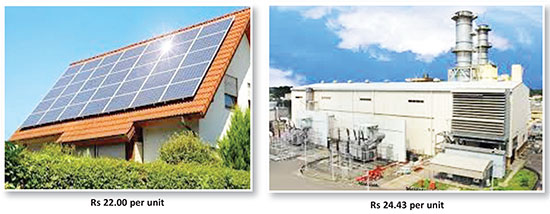
Dr Tilak Siyambalapitiya
Dr Janaka Rathnasiri laments (The Island 19 Feb 2021) that the Power Ministry has ignored the President’s directive to draw 70% of energy from renewable sources by 2030. I saw the approved costs of electricity production for 2019, published by the Public Utilities Commission (PUCSL).
PUCSL has also approved the prices to sell electricity to customers. Although various customers pay at various “approved” prices, the average income from such “approved” prices in 2019 was Rs 17.02 per unit. It is not only the Ministry, according to Dr Rathnasiri, ignoring the President; PUCSL is also breaking the law, which says prices and approved costs should be equal.
 So there is already an illegal gap of Rs 21.59 minus 17.02 = Rs 4.57 per unit of electricity sold. If electricity prices are not to be increased, as stated by many in the government and PUCSL, let us say the following: Distribution costs should decrease by 0.57 Rs per unit. Generation costs should decrease by Rs 4.00 per unit.
So there is already an illegal gap of Rs 21.59 minus 17.02 = Rs 4.57 per unit of electricity sold. If electricity prices are not to be increased, as stated by many in the government and PUCSL, let us say the following: Distribution costs should decrease by 0.57 Rs per unit. Generation costs should decrease by Rs 4.00 per unit.
PUCSL also published the approved cost of purchasing or producing electricity from various sources for 2019. The actual energy values were different to what was approved, but let us stick to PUCSL approved figures:
I suggest Dr Rathnasiri fills-up the following table, to show how much electricity will cost in 2030 to produce and deliver, if the President’s 70% target is to be achieved and for PUCSL to abide by the law. Let us assume that electricity requirement in 2030 will be double that of 2019.
 Since PUCSL has to save Rs 4 from 13.92, the average selling price for energy should be Rs 13.92 minus 4.00 = Rs 9.92. With a target network loss of 7% (in 2019 it was 8.4%), the average cost of production has to be Rs 9.27 per unit. Eight cages have to be filled-up by Dr Rathnasiri.
Since PUCSL has to save Rs 4 from 13.92, the average selling price for energy should be Rs 13.92 minus 4.00 = Rs 9.92. With a target network loss of 7% (in 2019 it was 8.4%), the average cost of production has to be Rs 9.27 per unit. Eight cages have to be filled-up by Dr Rathnasiri.
In 2012, PUCSL approved the energy cost of electricity produced from coal power to be 6.33 Rs per kWh. In 2019, PUCSL approved 9.89 (56% increase). For renewable energy, it was 13.69 in 2012, and 19.24 in 2019 (a 40% increase, but double the price of electricity from coal fired generation). In 2012, rooftop solar was not paid for: only give and take, but now paid Rs 22, against Rs 9.89 from coal. There seems to be something wrong. The price reductions of renewable energy being promised, being insulated from rupee depreciation, are not happening? Either Sri Lanka must be paying too little for coal, or it may be renewable energy is severely over-priced?
On coal we hear only of some corruption every now and then; so Sri Lanka cannot be paying less than it costs, for coal.
Enough money even to donate
vaccines
 Another reason for the Ministry of Power to ignore the President’s directive may be the Ministry’s previous experience with similar Presidential directives. In 2015, the President at that time cancelled the Sampur coal-fired power plant, and the Ministry faithfully obliged. That President and that Prime Minister then played ball games with more power plants until they were thrown out of power, leaving a two-billion-dollar deficit (still increasing) in the power sector. Not a single power plant of any description was built.
Another reason for the Ministry of Power to ignore the President’s directive may be the Ministry’s previous experience with similar Presidential directives. In 2015, the President at that time cancelled the Sampur coal-fired power plant, and the Ministry faithfully obliged. That President and that Prime Minister then played ball games with more power plants until they were thrown out of power, leaving a two-billion-dollar deficit (still increasing) in the power sector. Not a single power plant of any description was built.
Where is this deficit? You do not have to look far. In the second table, replace 24.43 with 9.89, to reflect what would have happened if Sampur was allowed to be built. The value 12.79 will go down to 8.55, well below the target of Rs 9.27 per unit to produce. Not only would CEB and LECO report profits, but the government too could have asked for an overdraft from CEB to tide over any cash shortfalls in the treasury. All this with no increase in customer prices. Producers of electricity from renewable energy could enjoy the price of 19.24 Rs per unit. And that blooming thing on your rooftop can continue to enjoy Rs 22 per unit. The Minister of Power, whom Dr Rathnasiri wants to replace with an army officer, would have been the happiest.
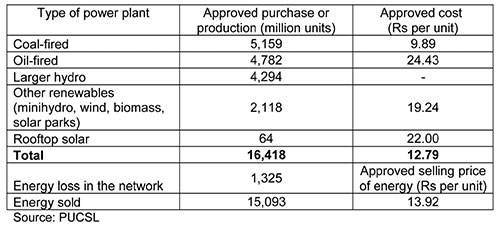 In the absence of Sampur (PUCSL’s letter signed by Chairman Saliya Mathew confirmed cancellation and asked CEB not to build it), PUCSL approved electricity to be produced at Rs 21.59 and sold at Rs 17.02 per unit. The annual loss would be Rs (21.59 – 17.02) x 15,093 = Rs 69 billion per year of approved financial loss. Sri Lanka has a Telecom regulator, an Insurance regulator, a Banking regulator, who never approve prices below costs. Sometime ago the telecom regulator asked the operators to raise the prices, when operators were proposing to reduce prices amidst a price war. But the electricity industry regulator is different: he approves costs amounting to 27% more than the price, not just once but, but continuously for ten long years !
In the absence of Sampur (PUCSL’s letter signed by Chairman Saliya Mathew confirmed cancellation and asked CEB not to build it), PUCSL approved electricity to be produced at Rs 21.59 and sold at Rs 17.02 per unit. The annual loss would be Rs (21.59 – 17.02) x 15,093 = Rs 69 billion per year of approved financial loss. Sri Lanka has a Telecom regulator, an Insurance regulator, a Banking regulator, who never approve prices below costs. Sometime ago the telecom regulator asked the operators to raise the prices, when operators were proposing to reduce prices amidst a price war. But the electricity industry regulator is different: he approves costs amounting to 27% more than the price, not just once but, but continuously for ten long years !
That is 370 million dollars per year as of 2019, the economy is spending, and for years to come, to burn oil (and say we have saved the environment). Did the Minister of Health say we are short of 160 million dollars to buy 40 million doses of the vaccine? Well, being a former Minister of Power, she now knows which Presidential “order” of 2015 is bleeding the economy of 370 million dollars per year, adequate to buy all vaccines and donate an equal amount to a needy country.
Prices are the production costs approved by PUCSL for 2019. The selling price approved by the same PUCSL was Rs 9.27 per unit.
Opinion
Confusion on NGOs and NSOs in Sri Lanka
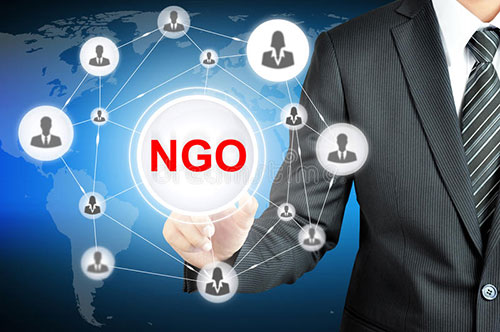
If you listen to politicians and journalists here, you will hear of that curious creature rajya novana sanvidane, a Non-State Organization (NSO). Where do you get them? In the uninstructed and dead minds of those who use those terms. In the real world, where politicians and journalists have developed minds, there are Non-Governmental Organizations (NGO). The United Nations is an organization set up by state parties, not by governments. It is true that agents of states, governments, make the United Nations work or fail. Governments may change but not the states, except rarely. When Eritrea broke away from Ethiopia, a new state was formed and was so recognised by the United Nations. However, the LTTE that tried to set up another state was crushed by the established state that it tried to break away from, and the UN had nothing to do with them.
This entirely unnecessary confusion, created out of ignorance, is so destructive that organizations completely loyal to the existing state, are made to be traitorous outfits, for they are ‘non-state organizations’ within the state. There are citizens of each state, but no citizens of any government. Government is but an instrument of the state. In most states there are organizations, neither of the state nor of government: religious organizations including churches. But none of them is beyond the pale of the state.
Those that speak of rajya novana sanvidane give that name partly because they have no idea of the origin of non-governmental organizations. NGOs came into the limelight, as donor agencies, noticed that some governments, in East Africa, in particular, did not have the capacity and the integrity to use the resources that they provided. They construed, about 1970, that NGOs would be a solution to the problem. Little did they realize that some NGOs themselves would become dens of thieves and brigands. I have not seen any evaluation of the performance of NGOs in any country. There was an incomplete essay written by Dr. Susantha Gunatilleka. NGOs are alternatives to the government, not to the state.
Our Constitution emphatically draws a distinction between the government and state, and lays down that the President is both Head of Government and Head of State (Read Article 2 and Article 30 of the Constitution.) It is as head of state that, he/she is the Commander of the Armed Forces, appoints and receives ambassadors and addresses Parliament annually, when a prorogued Parliament, reconvenes. He/she presides over the Cabinet as head of government. The distinction is most clear, in practice, in Britain where Queen Elizabeth is the head of state and Boris Johnson is the Prime Minister and head of government. However, in principle, Johnson is the Queen’s First Minister appointed by the sovereign, and resigns by advising her of his decision to do so.
In the US and in India the term ‘state’ has special significance. In India there is a ‘rajya sabha’ (the Council of States) whose members represent constituent States and Union Territories. Pretty much the same is true of the United States. In the US, executive power is vested in the President and heads the administration, government in our parlance. The Head of State does not come into the Constitution but those functions that one associates with a head of state are in the US performed by the President of the Republic. The US President does not speak of my state (mage rajaya) but of my administration, (mage anduva). Annually, he addresses Congress on the State of the Union. Our present President must be entirely familiar with all this, having lived there as a citizen of the US for over a decade. It is baffling when someone speaks of a past state as a traitor to that same state. It is probable that a government was a traitor to the state. ‘Treason against the United States, shall consist only in levying war against them, or in adhering to their (States’) enemies, giving them aid and comfort’. That a state was a traitor to the same state is gobbledygook.
Apart from probable confusion that we spoke of in the previous paragraph, it is probable that a president and other members of a government, including members of the governing party here, find it grandiloquent to speak of his/her/their state (mage/ape rajaya), rather than my government (mage anduva) or Sirisena anduva’ and not Sirisena state; it was common to talk of ‘ape anduva’ in 1956; politicians in 1956 were far more literate then than they are now.
When translating from another language, make sure that you understand a bit of the history of the concept that you translate. A public school in the US is not the same as a public school in the UK.
MAHADENAMUTTA









